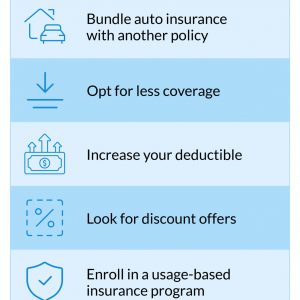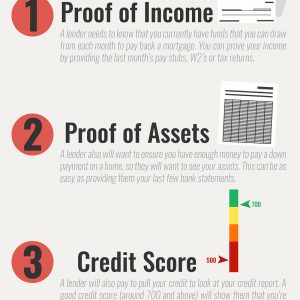“Stay informed and avoid costly consequences with our guide to tax law penalties.”
Understanding Tax Law Penalties: A Comprehensive Guide
Tax law penalties can be a daunting prospect for many taxpayers. The Internal Revenue Service (IRS) has a wide range of penalties that can be imposed for various violations of tax law. These penalties can range from minor fines to significant financial penalties and even criminal charges. Understanding tax law penalties is essential for taxpayers to avoid costly mistakes and ensure compliance with the law.
One of the most common tax law penalties is the failure to file penalty. This penalty is imposed when a taxpayer fails to file their tax return by the due date. The penalty is calculated as a percentage of the tax owed and can be as high as 5% per month, up to a maximum of 25%. This penalty can quickly add up, making it essential for taxpayers to file their tax returns on time.
Another common tax law penalty is the failure to pay penalty. This penalty is imposed when a taxpayer fails to pay their tax liability by the due date. The penalty is calculated as a percentage of the unpaid tax and can be as high as 0.5% per month, up to a maximum of 25%. This penalty can also quickly add up, making it essential for taxpayers to pay their tax liability on time.
In addition to these penalties, the IRS can also impose penalties for accuracy-related issues. These penalties are imposed when a taxpayer makes an error on their tax return that results in an underpayment of tax. The penalty is calculated as a percentage of the underpayment and can be as high as 20%. This penalty can be avoided by ensuring that all information on the tax return is accurate and complete.
The IRS can also impose penalties for fraud or negligence. These penalties are imposed when a taxpayer intentionally or recklessly disregards tax law. The penalty can be as high as 75% of the underpayment of tax and can also result in criminal charges. Taxpayers should take care to ensure that they are complying with tax law and avoiding any intentional or reckless disregard of the law.
Taxpayers who fail to report foreign assets or income can also face significant penalties. The IRS requires taxpayers to report all foreign assets and income on their tax returns. Failure to do so can result in penalties of up to 50% of the value of the foreign assets. Taxpayers should ensure that they are reporting all foreign assets and income to avoid these penalties.
Finally, taxpayers who fail to comply with IRS requests for information or fail to appear for an audit can also face penalties. These penalties can be as high as $10,000 per day for failure to comply with an IRS request for information and $500 per day for failure to appear for an audit. Taxpayers should ensure that they are complying with all IRS requests for information and appearing for all audits to avoid these penalties.
In conclusion, understanding tax law penalties is essential for taxpayers to avoid costly mistakes and ensure compliance with the law. The IRS has a wide range of penalties that can be imposed for various violations of tax law. Taxpayers should take care to ensure that they are complying with tax law and avoiding any intentional or reckless disregard of the law. By doing so, taxpayers can avoid significant financial penalties and even criminal charges.
Avoiding Tax Law Penalties: Tips and Strategies for Compliance
Tax Law Penalties: What You Need to Know
Paying taxes is a civic duty that every citizen must fulfill. However, not everyone is aware of the tax laws and regulations that govern their financial obligations. Failure to comply with these laws can result in penalties and fines that can be financially devastating. In this article, we will discuss the penalties associated with tax law violations and provide tips and strategies for avoiding them.
Penalties for Late Filing and Payment
One of the most common tax law violations is late filing and payment. If you fail to file your tax return or pay your taxes on time, you may be subject to penalties and interest charges. The penalty for late filing is usually 5% of the unpaid taxes for each month or part of a month that the return is late, up to a maximum of 25%. The penalty for late payment is 0.5% of the unpaid taxes for each month or part of a month that the payment is late, up to a maximum of 25%.
To avoid these penalties, it is important to file your tax return and pay your taxes on time. If you are unable to pay your taxes in full, you can request an installment agreement with the IRS. This will allow you to pay your taxes over time, but you will still be subject to interest charges.
Penalties for Underpayment of Estimated Taxes
If you are self-employed or have income that is not subject to withholding, you are required to make estimated tax payments throughout the year. Underpayment of estimated taxes can result in penalties and interest charges. The penalty for underpayment of estimated taxes is calculated based on the amount of tax that should have been paid and the number of days that the payment was late.
To avoid underpayment penalties, it is important to estimate your tax liability accurately and make timely payments throughout the year. You can use the IRS’s online withholding calculator to help you determine the appropriate amount of estimated tax payments.
Penalties for Negligence or Fraud
Negligence or fraud in your tax return can result in severe penalties and even criminal charges. Negligence is defined as a failure to exercise reasonable care in preparing your tax return. Fraud is defined as an intentional act of deception or misrepresentation on your tax return.
The penalty for negligence is usually 20% of the underpaid tax, while the penalty for fraud is usually 75% of the underpaid tax. In addition to these penalties, you may also be subject to criminal charges and imprisonment.
To avoid negligence or fraud penalties, it is important to keep accurate records and report all income and deductions honestly and accurately. If you are unsure about any aspect of your tax return, seek the advice of a qualified tax professional.
Conclusion
Tax law penalties can be costly and can have serious consequences. To avoid these penalties, it is important to understand the tax laws and regulations that govern your financial obligations. By filing your tax return and paying your taxes on time, making accurate estimated tax payments, and reporting all income and deductions honestly and accurately, you can avoid penalties and ensure compliance with the tax laws. If you are unsure about any aspect of your tax return, seek the advice of a qualified tax professional.





